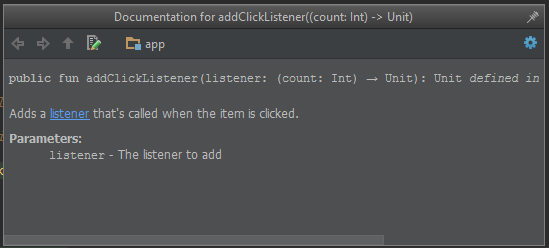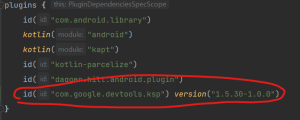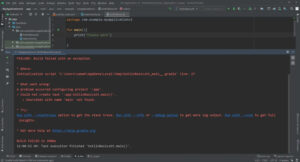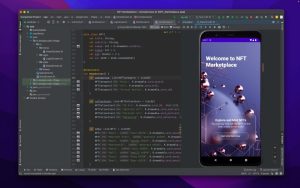In modern programming, functions are often used as building blocks for software development. One of the essential features of programming languages like Kotlin is the ability to pass functions as parameters. In this blog, we will explore what this means and why it’s essential.
What is a function parameter?
A function parameter is a value that is passed to a function when it is called. The function can then use this value to perform some operation. For example, let’s say we have a function that calculates the area of a rectangle:
fun calculateRectangleArea(width: Int, height: Int): Int { return width * height }In this function, width and height are the parameters that are passed to the function. We can call this function like this:
scssCopy codeval area = calculateRectangleArea(5, 10)
Here, we are passing 5 and 10 as the values for the width and height parameters, respectively. The function then returns the area of the rectangle, which is 50.
What is a function passed as a parameter?
In Kotlin, we can also pass functions as parameters to other functions. This means that we can define a function and then pass it to another function as an argument.
Here is an example of a function that takes another function as a parameter:
fun calculateWithFunction(number: Int, calculation: (Int) -> Int): Int { returncalculation(number) }In this function, number is an integer value that is passed as the first parameter, and calculation is a function that takes an integer as a parameter and returns an integer. The calculation function is then called with the number parameter, and its result is returned.
We can call this function like this:
val result = calculateWithFunction(5) { number -> number * 2 In this example, we are passing the number 5 as the first parameter to the calculateWithFunction function. We are also passing a lambda function as the second parameter. The lambda function takes an integer as a parameter and multiplies it by 2. The calculateWithFunction function then calls this lambda function with the number parameter (5), and its result is returned. In this case, the result would be 10.
Why is passing a function as a parameter useful?
Passing a function as a parameter can be useful in many scenarios. It allows us to create more flexible and reusable code. Here are some examples:
- Higher-order functions: By passing functions as parameters, we can create higher-order functions. These are functions that take other functions as parameters or return functions as results. Higher-order functions are a powerful tool that can simplify code and make it more flexible.
- Customization: When we pass a function as a parameter, we can customize the behavior of a function without changing its code. For example, we could pass a different calculation function to the
calculateWithFunctionfunction to perform a different calculation. This can be especially useful when we have many similar functions that differ only in their behavior. - Abstraction: By passing functions as parameters, we can abstract away the details of a particular calculation or operation. This can make our code more modular and easier to read and maintain.
Conclusion
In conclusion, passing functions as parameters is a powerful feature of Kotlin that allows us to create more flexible and reusable code. By using this feature, we can create higher-order functions, customize behavior, and abstract away details. If you’re new to Kotlin, it’s worth taking the time to learn about this feature and how you can use it to write more efficient and effective code.
Let me explain further.
In Kotlin, functions are considered as first-class citizens, meaning they can be treated as values or objects, like any other variable or object. This means that we can store a function in a variable, pass it as an argument to another function, or return it as a result from a function.
When we pass a function as a parameter, we can pass either a named function, an anonymous function, or a lambda function. This flexibility allows us to choose the level of abstraction that best suits our needs.
For example, let’s consider the following scenario. We have an array of integers, and we want to apply a specific calculation to each element of the array. We could achieve this by writing a function that takes the array and the calculation function as parameters, like this:
fun applyCalculationToElements(numbers: Array<Int>, calculation: (Int) -> Int): Array<Int> { return numbers.map { calculation(it) }.toTypedArray() }In this function, the calculation parameter is a function that takes an integer as input and returns an integer. The applyCalculationToElements function applies the calculation function to each element of the numbers array using the map function and returns the resulting array.
Now, let’s say we want to apply a simple multiplication calculation to the elements of the array. We can define a named function that performs the multiplication, like this:
fun multiplyByTwo(number: Int): Int { return number * 2 }We can then call the applyCalculationToElements function and pass the multiplyByTwo function as the calculation parameter, like this:
val numbers = arrayOf(1, 2, 3, 4, 5) val result = applyCalculationToElements(numbers, ::multiplyByTwo)In this example, we are passing the multiplyByTwo function as a named function using the :: operator.
Alternatively, we can use an anonymous function to define the calculation function inline, like this:
val numbers = arrayOf(1, 2, 3, 4, 5) val result = applyCalculationToElements(numbers, fun(number: Int): Int { return number * 2 })In this example, we are defining the calculation function using the fun keyword and passing it inline as an argument.
Finally, we can use a lambda function to define the calculation function, which is the most concise option, like this:
val numbers = arrayOf(1, 2, 3, 4, 5) val result = applyCalculationToElements(numbers, { number -> number * 2 })In this example, we are defining the calculation function using a lambda expression enclosed in curly braces {}.
As you can see, passing functions as parameters provides a lot of flexibility and allows us to write more modular and reusable code. By choosing the appropriate level of abstraction, we can make our code more expressive and easier to read and maintain.
Sure, here are some advantages and disadvantages of passing functions as parameters in Kotlin:
Advantages:
- Increased flexibility: When functions are passed as parameters, it allows for increased flexibility in the code. The function can be changed depending on the situation, without modifying the code that calls it.
- Reusability: By passing functions as parameters, it becomes easier to reuse code. For example, we can pass a generic sorting function to sort different types of data structures, without having to write a separate sorting function for each one.
- Improved readability: Passing functions as parameters can make code more readable and expressive. It allows us to use more descriptive names for the parameters, which can make the code easier to understand.
- Modular code: By passing functions as parameters, we can write more modular code. Each function can be responsible for a specific task, which makes the code more organized and easier to maintain.
Disadvantages:
- Complexity: When functions are passed as parameters, the code can become more complex and harder to understand. It can be difficult to keep track of what each function is doing, and how they all fit together.
- Performance: Passing functions as parameters can have a negative impact on performance, especially if the functions are large or have complex logic. This is because the function has to be called each time it is passed as a parameter, which can slow down the code.
- Debugging: Debugging code that involves passing functions as parameters can be more difficult. It can be challenging to determine where a bug is located, and what is causing it.
- Syntax: Passing functions as parameters requires a certain syntax, which can be confusing for developers who are not familiar with it. It can take some time to get used to the syntax and understand how to use it correctly.
Overall, passing functions as parameters is a powerful feature of Kotlin that can help make code more flexible, reusable, and expressive. However, it is important to use this feature judiciously, as it can also make the code more complex and harder to understand.










